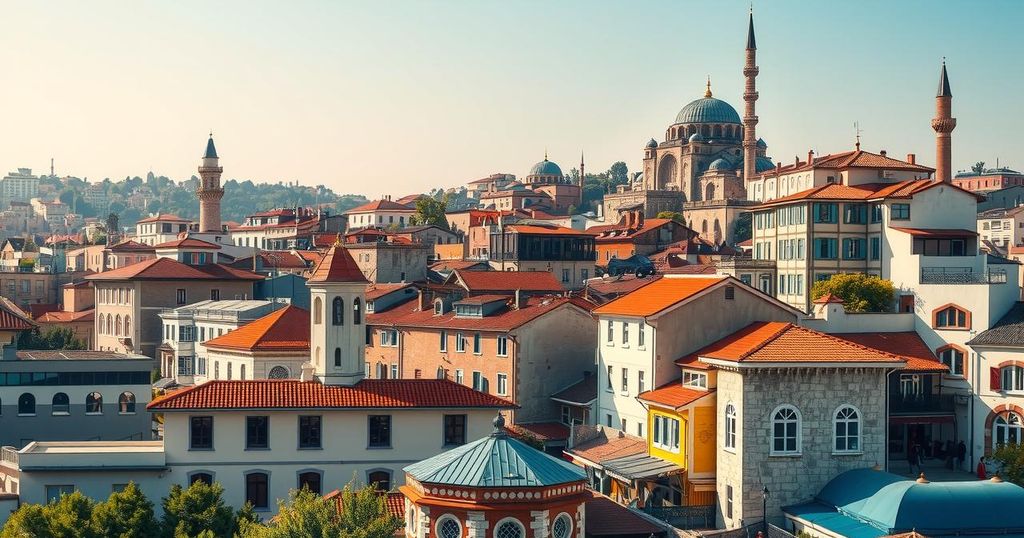Turkey’s Evolving Landscape: Addressing the PKK Insurgency and Economic Challenges
Turkey is addressing the enduring PKK insurgency through military action and peace initiatives. Recent statements from Kurdish militants hint at a ceasefire, while Turkey pressures for the dissolution of PKK groups in the region. Concurrently, the government faces internal challenges, with criticism from business leaders and protests amidst a crackdown on opposition. Economically, a key interest rate reduction coincides with Erdogan’s bold international diplomacy efforts.
Recep Tayyip Erdogan, President of Turkey, has made significant moves regarding the Kurdistan Workers’ Party (PKK), which has been involved in a decades-long insurgency. In military operations, Turkey reports the elimination of 26 PKK militants, despite ongoing peace initiatives. Furthermore, Kurdish PKK militants have announced a ceasefire, signaling a potential shift towards resolution in the long-standing conflict. In parallel, Turkey is pushing for the dismantling of PKK-affiliated groups within Syria and Iraq following a peace appeal from their leader.
Economically, Turkey’s central bank has recently lowered the key interest rate amid a decline in inflation levels. Concurrently, political tensions persist as two business leaders face questioning after expressing criticism towards the government. In an effort to further peace dialogues, a Turkish opposition party delegation has met with a Kurdish leader in Iraq, underscoring a collaborative pursuit for stability.
In regional developments, Palestinian militant group Hamas has pledged to release three Israeli hostages, potentially alleviating tensions with Israel during ongoing conflicts. Turkey’s Erdogan condemned Israel during his recent visit to Pakistan, emphasizing the crisis in Gaza. His visit aims to strengthen trade and economic relations.
The Turkish political landscape remains tumultuous as authorities have detained ten officials and have expanded crackdowns in opposition-held Istanbul districts. Protests erupted in Istanbul against the Gaza war, displaying widespread public dissent. Public safety concerns are heightened, as evidenced by a deadly ski resort fire resulting in multiple arrests. Additionally, Erdogan’s controversial declaration of a ‘Year of the Family’ includes an outspoken stance against the LGBTQ+ community, raising societal debates.
Lastly, Turkey is navigating complex international relations, as discussions between Turkey and Russia are underway over Syria following the Assad government’s decline. Erdogan’s offer to mediate conflicts between Sudan and the UAE, as well as technical discussions between Ethiopia and Somalia regarding Somaliland, highlights Turkey’s engagement in regional diplomacy.
In summary, Turkey is pursuing a multi-faceted approach to address long-standing issues, such as the Kurdish conflict and regional diplomatic relations. While military action continues against the PKK, peace efforts have seen recent declarations from Kurdish militants. Economically, Turkey’s central bank has adjusted interest rates in light of inflation trends. The political climate remains charged, marked by government crackdowns and public protests, alongside Erdogan’s assertive foreign policy positions. These developments underscore the complexities of Turkey’s domestic and international landscapes.
Original Source: apnews.com




Post Comment